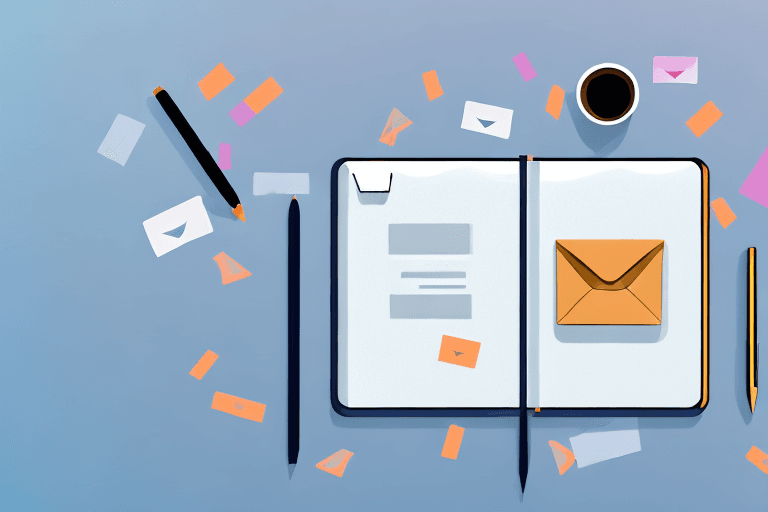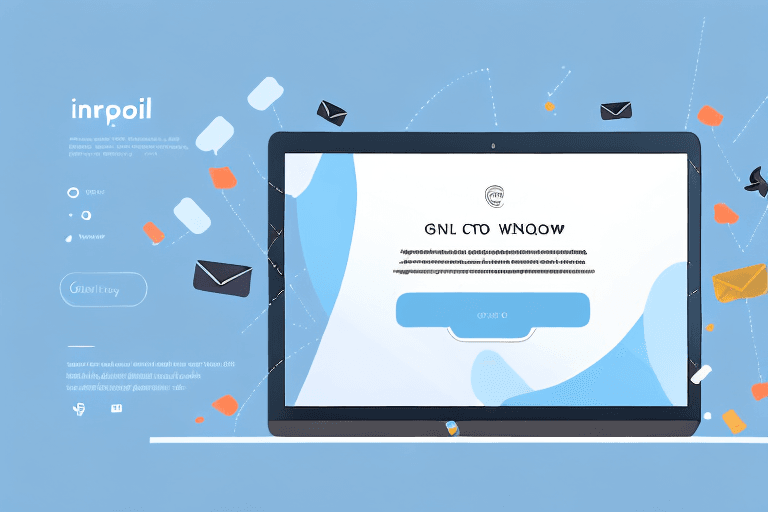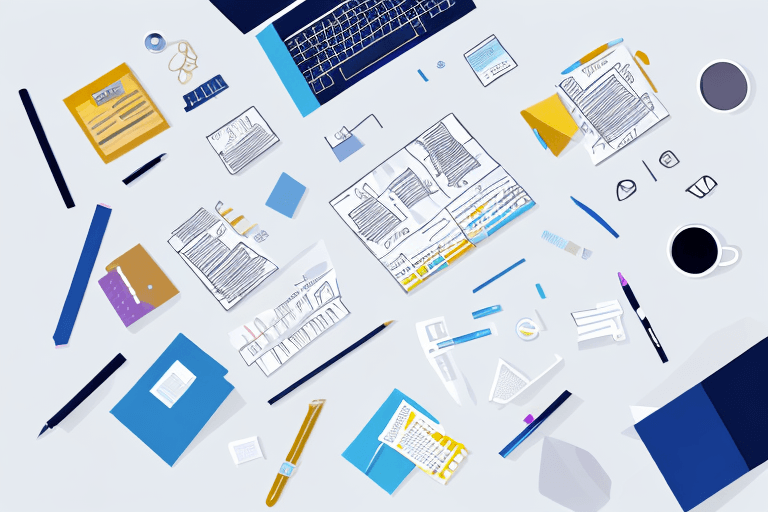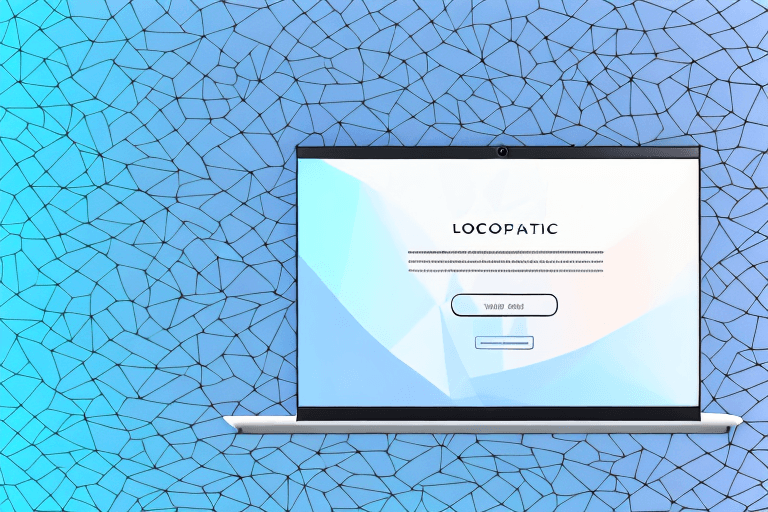After a job interview, it's crucial to communicate your appreciation to the hiring manager, and one effective way to accomplish this is by sending a thank you email. Not only does this gesture demonstrate your professionalism and gratitude, but it can also help you stand out in the competitive job market. In this article, we'll discuss the importance of sending a thank you email, when to send it, and what should be included in an effective message.
Why Sending a Thank You Email is Important
There are several reasons why sending a thank you email after an interview can be beneficial. Firstly, it shows the hiring manager that you have a genuine interest in the position and appreciate the opportunity to interview. Secondly, it reinforces your professionalism, as you are taking the time to follow up and acknowledge the time and effort that the interviewer invested in meeting you. Finally, it provides an opportunity to showcase your communication skills and leaves a positive and lasting impression.
Making a Lasting Impression
One of the main purposes of a thank you email is to leave a positive and memorable impression. By demonstrating your appreciation and highlighting your strengths, accomplishments, and enthusiasm for the position, you can differentiate yourself from other candidates who may not bother to send a message. Remember, the hiring manager may be interviewing multiple people, so you want to do everything you can to make yourself stand out.
Showing Gratitude and Professionalism
A thank you email is an opportunity to show gratitude for the time, effort, and consideration that the interviewer has provided you. It also demonstrates your professionalism and attention to detail. Crafting a well-written email that is error-free and personalized can showcase your communication skills, as well as your sincerity and appreciation for the opportunity.
Reinforcing Your Interest in the Position
By expressing your excitement and interest in the position, you can reinforce your commitment to pursuing the job opportunity. Employers want to hire candidates who are enthusiastic and passionate about their work, and a thank you email can be an excellent opportunity to convey this.
However, it's important to note that sending a thank you email should not be seen as a guarantee of success in the hiring process. While it can certainly help to leave a positive impression, ultimately, the decision to hire someone is based on a variety of factors, including qualifications, experience, and fit within the company culture.
That being said, a thank you email can still be a valuable tool in your job search arsenal. In addition to leaving a positive impression, it can also serve as a reminder to the hiring manager of your qualifications and experience. This can be especially helpful if you feel that you didn't have the opportunity to fully showcase your skills during the interview.
Another benefit of sending a thank you email is that it can help to keep you top of mind for the hiring manager. In a competitive job market, it's important to stay on the radar of potential employers, and a well-crafted thank you email can help to accomplish this.
Finally, sending a thank you email can also be a way to continue the conversation with the hiring manager. You can use the email as an opportunity to ask any follow-up questions or clarify any points that may have been unclear during the interview. This can demonstrate your interest in the position and your willingness to engage in a dialogue with the employer.
When to Send Your Thank You Email
It's essential to send your thank you email shortly after the interview while the impression is still fresh in the interviewer's mind. However, it's not just about timing; it's also about the content of your email and how it can help you stand out from other candidates.
The Ideal Timeframe
The ideal time to send a thank you email is within 24-48 hours after the interview. This timeframe is short enough that the interviewer will remember who you are, but not so long that it will seem like an afterthought. It also shows that you are proactive and appreciate the interviewer's time and effort in considering you for the job.
However, if you feel that sending an email too soon may come across as pushy or desperate, it's okay to wait a little longer. Just make sure you don't wait too long, or the interviewer may forget about you.
If the job interview took place over the course of several days, such as in the case of a multi-day interview, it's best to send a thank you email after each interview session. This will show your enthusiasm and dedication to the job.
Factors to Consider
If you are unsure when to send your thank you email or are concerned about the appropriateness of sending one, consider the company culture and the hiring timeline. If the company is known for having a fast-paced hiring process, it may be best to send the email sooner rather than later. On the other hand, if the company has a more relaxed hiring process, you may have more time to craft a thoughtful email.
Another factor to consider is the interviewer's communication style. If the interviewer seemed more formal and professional, your email should reflect that tone. If the interviewer was more casual and friendly, you can be a bit more relaxed in your email.
Overall, sending a thank you email is always a good idea, no matter the circumstances. It shows that you are courteous, professional, and interested in the job. So, take the time to craft a well-written email that highlights your skills and qualifications, and you may just land that dream job!
Key Components of an Effective Thank You Email
Personalization and Greeting
When crafting your thank you email, it's important to personalize it to the interviewer and the specific job opportunity. Address the hiring manager by name and reference specific aspects of the conversation that you found particularly interesting or insightful. This shows that you were actively engaged during the interview and listened attentively.
Expressing Your Appreciation
Begin your email by expressing your appreciation for the time and effort that the interviewer invested in speaking with you. Thank them for the opportunity to interview and convey your gratitude for the chance to learn more about the position and the company.
Highlighting Your Qualifications and Skills
One effective way to showcase your qualifications and fit for the position is to highlight key points from the interview that demonstrate your relevant skills, experience, and accomplishments. This can help the hiring manager remember your strengths and reinforce why you are a good candidate for the job.
Addressing Any Concerns or Follow-up Questions
If there were any concerns or areas that require further clarification, it's important to address them in your thank you email. This can help alleviate any confusion or misconceptions and demonstrate your commitment to understanding the scope of the position and the company's expectations.
Closing and Contact Information
End your email by briefly restating your appreciation for the opportunity and expressing your excitement for the position. Provide your contact information and let the interviewer know that you are available to answer any further questions or discuss the opportunity in more detail. Sign off with a professional closing, such as "Sincerely" or "Best regards."
Sample Thank You Email Templates
Template for a Formal Interview
- Greeting (e.g., Dear Mr./Ms. [Last Name])
- Express your appreciation and thanks for the opportunity to interview.
- Reiterate your interest in the position and the company.
- Highlight key points from the conversation and express your qualifications for the job.
- Address any concerns or follow-up questions.
- Closing (e.g., "Sincerely") and your contact information.
Template for a Casual Interview
- Greeting (e.g., Hello [First Name])
- Thank the interviewer for their time and express your appreciation for the opportunity to speak with them.
- Reiterate your interest in the position and express why you believe you would be a good fit for the job.
- Add a personal touch by recalling a specific aspect of the conversation that you enjoyed or found particularly interesting.
- Closing (e.g., "Take care") and your contact information.
Template for a Panel Interview
- Group greeting (e.g., Dear Hiring Team)
- Thank the hiring team for their time and express your appreciation for the opportunity to speak with them.
- Reiterate your interest in the position and summarize your qualifications for the job.
- Highlight key points from the interview and reference specific members of the panel.
- Address any concerns or follow-up questions from the panel discussion.
- Closing (e.g., "Best regards") and your contact information.
Template for a Phone or Video Interview
- Greeting (e.g., Hello [First Name])
- Thank the interviewer for their time and express your appreciation for the opportunity to interview virtually.
- Reference specific aspects of the conversation and express why you would be a good fit for the position.
- If applicable, address any technical issues or concerns that arose during the interview.
- Closing (e.g., "Warmly") and your contact information.
In conclusion, sending a thank you email after an interview can help you stand out, reinforce your interest in the position and the company, and showcase your communication skills. Each email should aim to be personalized, express gratitude, highlight qualifications, and provide contact information. By following these guidelines and using these templates, you can craft thank you emails that leave a positive and lasting impression on your potential employer.




